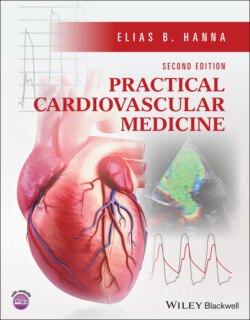Читать книгу Practical Cardiovascular Medicine - Elias B. Hanna - Страница 103
7. A patient presents with chest pain that has lasted 2–3 hours earlier today and has now resolved. His ECG shows inferior Q waves and T-wave inversion, without any significant ST elevation. Should he undergo emergent reperfusion?
ОглавлениеPCI is preferably, but not necessarily, performed emergently. Resolution of ST elevation with appearance of Q waves (phase 3) often implies a late presentation, >12–24 hours, but may also occur after a brief ischemia, e.g., 1–2 hours, as in this case. This patient does not qualify for fibrinolysis (no residual ST elevation). He still qualifies for PCI, not necessarily on an emergent basis.
In general, a patient qualifies for emergent PCI with either of the following two conditions: (i) persistent ST elevation with a presentation less than 24 hours after pain onset (even if pain is not persistent); (ii) persistent pain, even if the patient presents later than 24 hours after pain onset and even if ST elevation has resolved.
